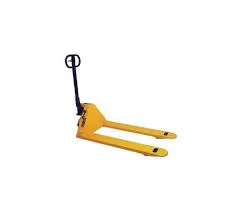


Understanding Crane Scale Prices A Comprehensive Guide
Crane scales play an essential role in various industries, particularly in heavy lifting and material handling. These weighing devices enable users to measure the weight of large objects suspended from cranes, ensuring that the weight limits of lifting equipment are not exceeded. As businesses seek to improve efficiency and safety, understanding the factors that influence crane scale prices becomes crucial.
What is a Crane Scale?
A crane scale is a type of digital or mechanical scale specifically designed for weighing suspended loads. It consists of a load hook, a weighing mechanism, and often a digital display. Crane scales are widely used in construction, shipping, warehouses, and any field where lifting heavy objects is common. They provide accurate weight measurements, which are vital for ensuring compliance with safety regulations and optimizing lifting operations.
Factors Influencing Crane Scale Prices
Several factors contribute to the price of crane scales. Understanding these can help businesses make informed decisions when purchasing these tools.
1. Load Capacity The primary factor affecting the price of a crane scale is its load capacity. Scales designed for heavier loads, such as those capable of weighing several tons, generally have higher prices due to the robust materials and technology required to ensure safety and accuracy.
2. Technology and Features The technological sophistication of a crane scale plays a significant role in its price. Basic models may only offer simple weight readings, while advanced models come equipped with features like wireless connectivity, data logging, and overload protection. Scales with digital displays or remote controls may also incur higher costs due to their convenience and advanced functionality.

3. Brand and Quality The brand reputation and the quality of the materials used also significantly impact price. Well-established brands that are known for durability and accuracy tend to charge more for their products. Investing in a reputable brand often ensures reliability and long-term performance.
4. Calibration and Certification Some industries require scales to be calibrated and certified according to strict regulations. Scales that come with certification can command higher prices, as they assure users of their accuracy and compliance with industry standards.
5. Accessories and Add-ons Crane scales can be purchased as standalone devices or as part of a more extensive system of lifting and weighing equipment. Additional accessories, such as protective cases, mounting hardware, and software for data management, can also influence pricing.
Price Ranges
The price of crane scales can vary widely depending on the factors mentioned above. Basic models may start around $200, while scales with advanced features and high load capacities can exceed $5,000 or more. For industries requiring frequent use of heavy lifting equipment, it is often a worthwhile investment to purchase higher-end models that promise enhanced safety and longevity.
Conclusion
In conclusion, crane scale prices reflect a variety of influences including load capacity, technology, brand reputation, necessary certifications, and additional features. For businesses operating in environments involving heavy lifting, investing in a quality crane scale is vital. Not only does it ensure safety and compliance, but it also contributes to operational efficiency. By understanding the factors impacting crane scale prices, businesses can make strategic purchasing decisions that align with their weighing needs and budget constraints.



